Do you aspire to be a drone pilot and are keen to grow your career in agriculture sector ? Look no further! In this blog post, we will take you through the essential steps to start your journey as a Agri drone pilot in India.
In the heartland of India's agricultural landscape, a new era is dawning. The emergence of agricultural drones has revolutionized the way farmers approach cultivation and crop management. At the forefront of this technological revolution are Agri Drone Pilots, skilled individuals who navigate the skies, providing farmers with invaluable insights and data. If you're intrigued by the idea of combining technology and agriculture, this guide will walk you through the steps to become an Agri Drone Pilot in India.
Embarking on the path of becoming an Agri Drone Pilot starts with recognizing the profound impact of these aerial assistants. Agri drones are no ordinary gadgets; they're sophisticated marvels armed with an array of sensors and high-powered cameras. This advanced technology empowers them to capture intricate details of crops - from their health and potential pest threats to precise irrigation requirements. Now, why is this a game-changer? It's because this data becomes a powerful tool for farmers. It guides them in making well-informed choices, ensuring resources like water, pesticides, and fertilizers are used efficiently. This not only cuts costs but also champions environmental sustainability. The ultimate win? It leads to healthier, more abundant crops, which translates to a better food supply for all. So, as you step into the realm of Agri Drone Piloting, remember, you're about to master a skill that's not just fascinating but also immensely beneficial for farmers and our planet.
Becoming a Agri drone pilot in India involves a deep understanding of the regulatory landscape that governs drone operations. The Directorate General of Civil Aviation (DGCA) plays a vital role in formulating and implementing regulations to ensure the safe and responsible use of drones across the country. Aspiring drone pilots must familiarise themselves with the DGCA's guidelines and requirements, as adherence to these regulations is essential for a successful career.
The DGCA has established a comprehensive set of guidelines that cover various aspects of drone operations. These guidelines encompass Airspace Restrictions, Drone Registration, Pilot Licensing, operational Limitations, and Safety Protocols . Also, Ministry of Agriculture and Farmers Welfare Department of Agriculture and Farmers Welfare released the Standard Operating Procedure (SOP) for use of Drone Applications in Agriculture.
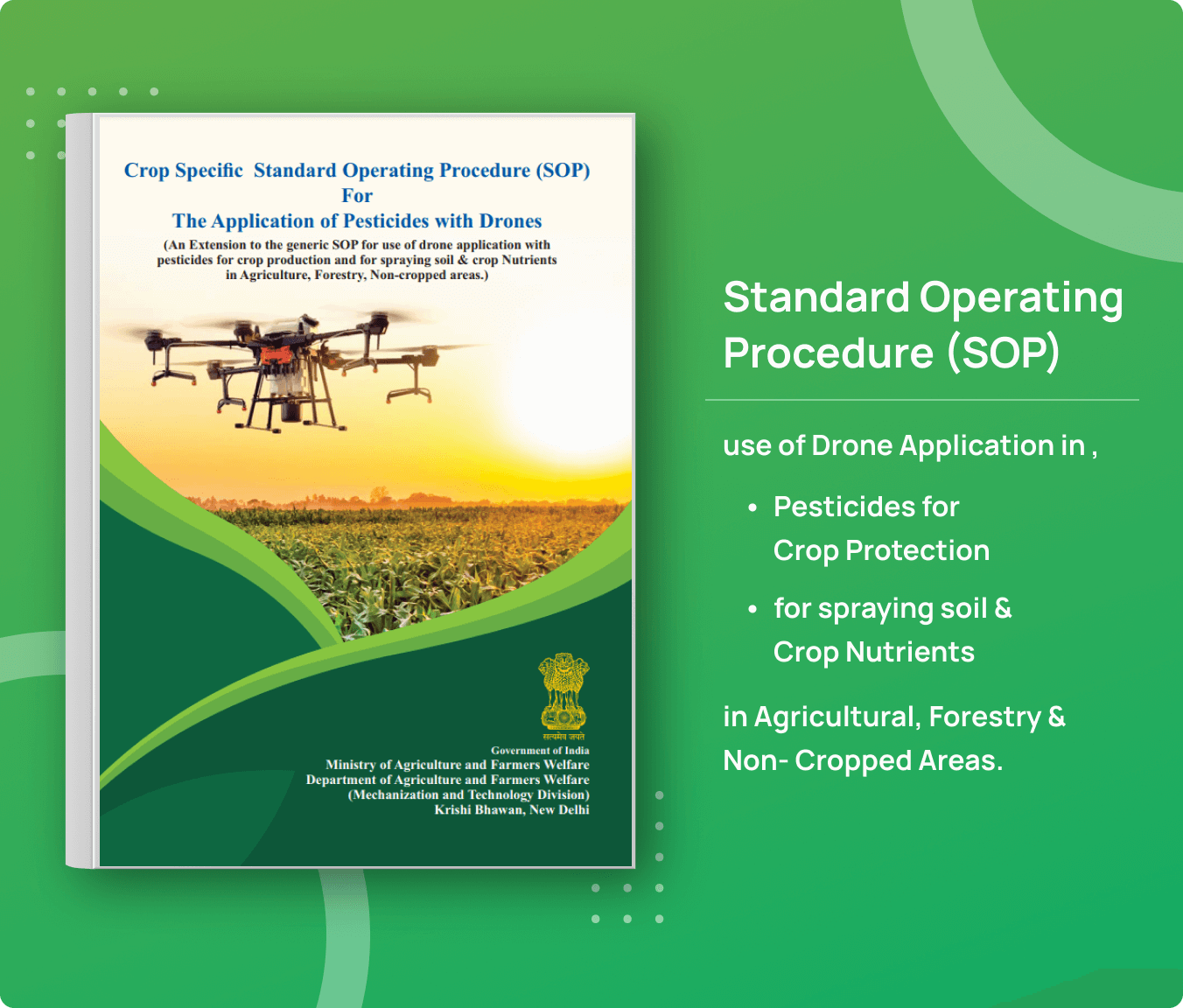
Standard Operating Procedure (SOP) for use of Drone Applications in Agriculture by Ministry of Agriculture and Farmers Welfare Department of Agriculture and Farmers Welfare.
To Download the Document, Click on the link below :
SOP_Drone_Application_English_cdr.pdf
As a potential Agri drone pilot, it is crucial to thoroughly study and comprehend these regulations to ensure safe and legal operations.
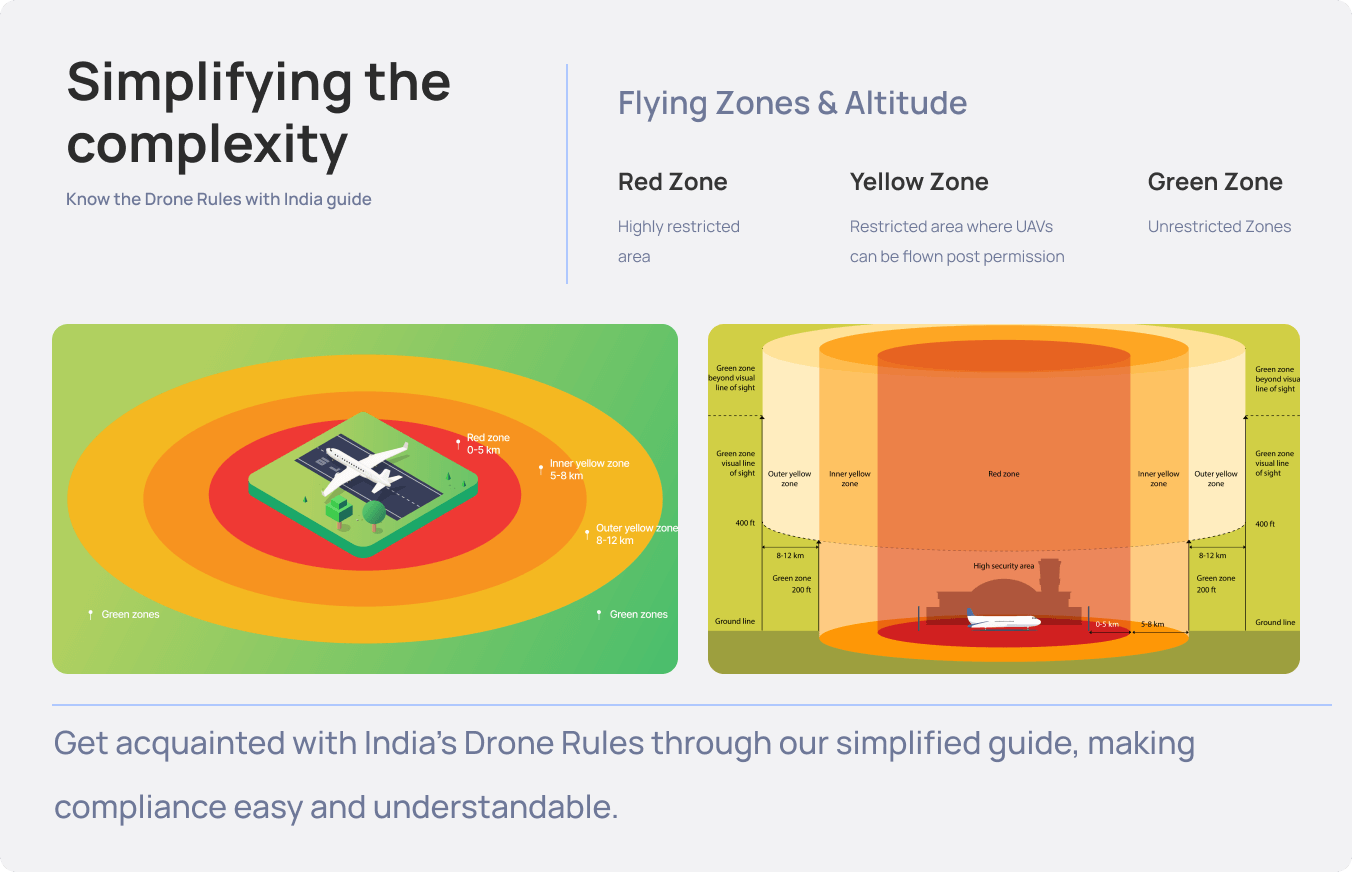
To Know more, Click on the link below:
https://tropogo.com/india-guides/drone-laws/generic-rules
To operate drones for agricultural purposes, it is essential to acquire the necessary training and knowledge to operate drones safely and effectively. Operating drones commercially in India requires a deep understanding of drone operation principles, flight planning, safety protocols, and data collection techniques. By enrolling in Drone Training Programs , you can develop these skills and expertise needed to excel in this field.
Remote Pilot Training organization (RPTO) across India offer specialised courses tailored to the requirements of Agri drone pilots. These courses cover a wide range of topics, providing in-depth knowledge of drone technology, flight dynamics, navigation systems, and emergency procedures.
Flight planning is a crucial aspect of drone operations, and comprehensive training programs emphasise its significance. You will learn how to assess the agriculture surveying area, identify potential obstacles, and plan efficient flight paths to capture accurate and high-resolution data. Training also encompasses Pre-Flight and Post-Flight Checklists to ensure the drone's readiness and the proper handling of data collected during surveys.
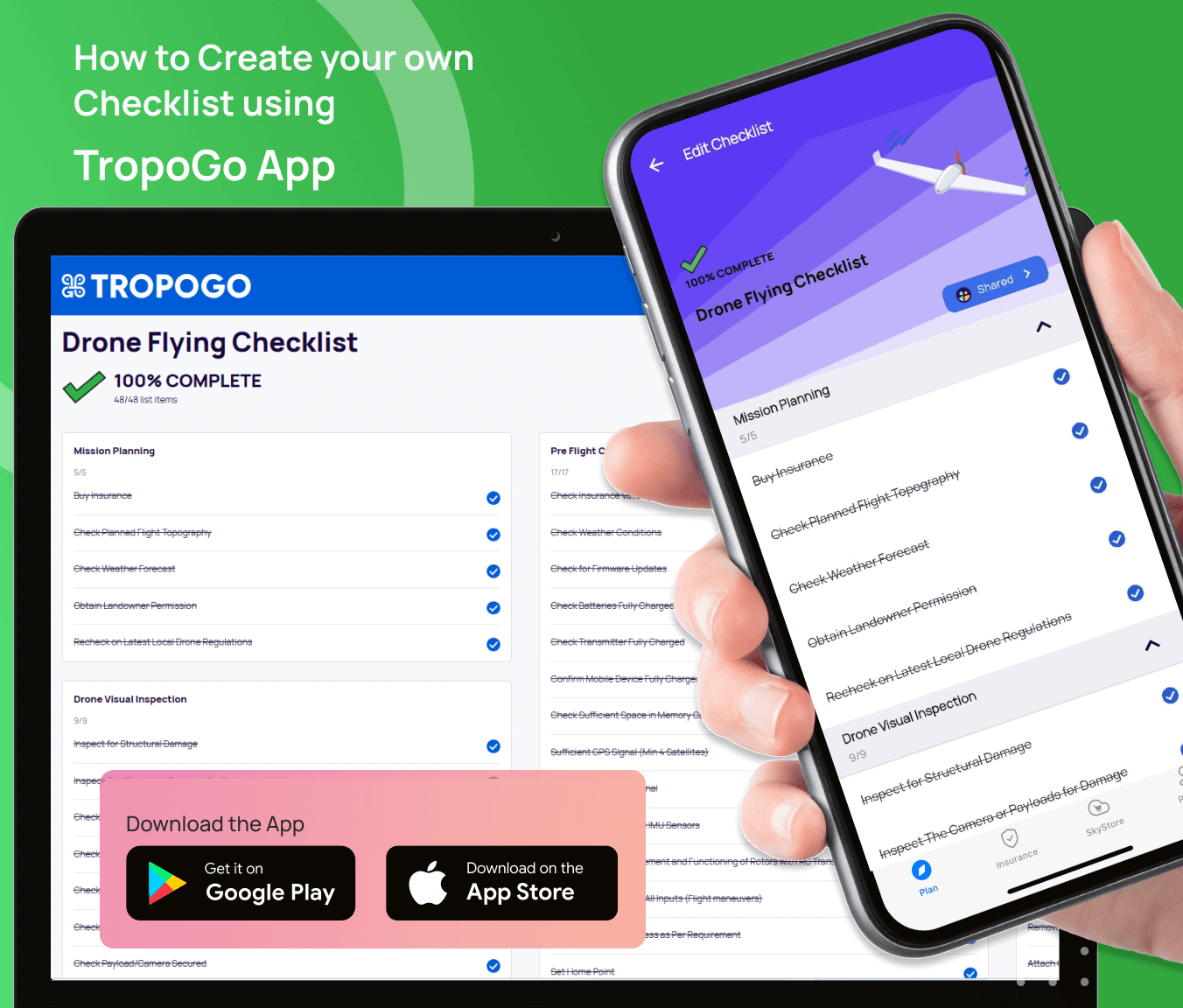
To Create your Checklist, Click on the Download button above
To ensure legal and compliant operation of drones for commercial purposes in India, obtaining a Remote Pilot Certificate (RPC) is essential. The RPC asserts that you have met the required standards and possess the necessary knowledge and skills to operate drones in accordance with Indian aviation regulations.
Acquiring the RPC not only validates your capabilities as a professional agri drone pilot but also ensures that you are equipped with the knowledge to mitigate risks, prevent accidents, and efficiently navigate through challenging scenarios. The Certificate is a testament to your commitment to professionalism and adherence to aviation regulations.
Choosing the perfect drone and gear is a critical step for successful agricultural drone missions. Think of it as choosing the right tools for a job. Consider factors like how long the drone can stay in the air, the quality of its camera, and how much weight it can carry. For agricultural tasks, drones with special features like multispectral or thermal imaging are crucial. They give you highly detailed info about crop health and soil conditions. So, before you take off on your missions, make sure you're equipped with the right drone and gears.

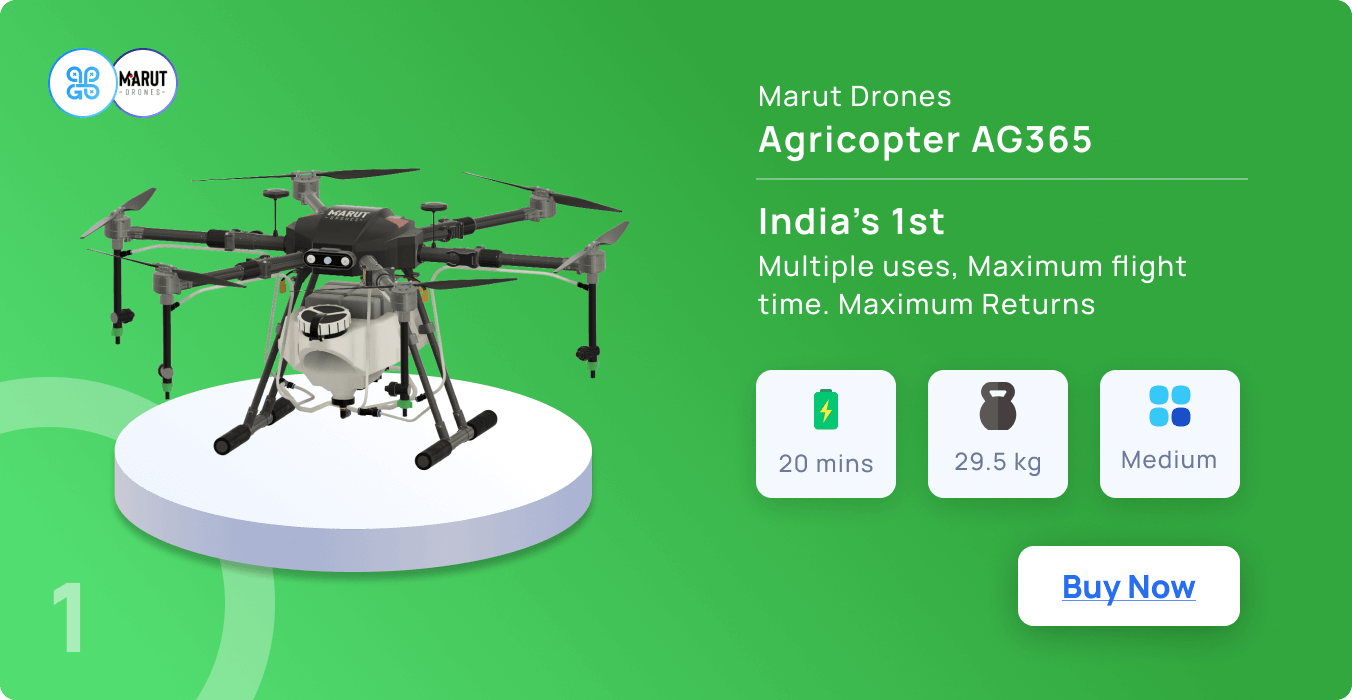
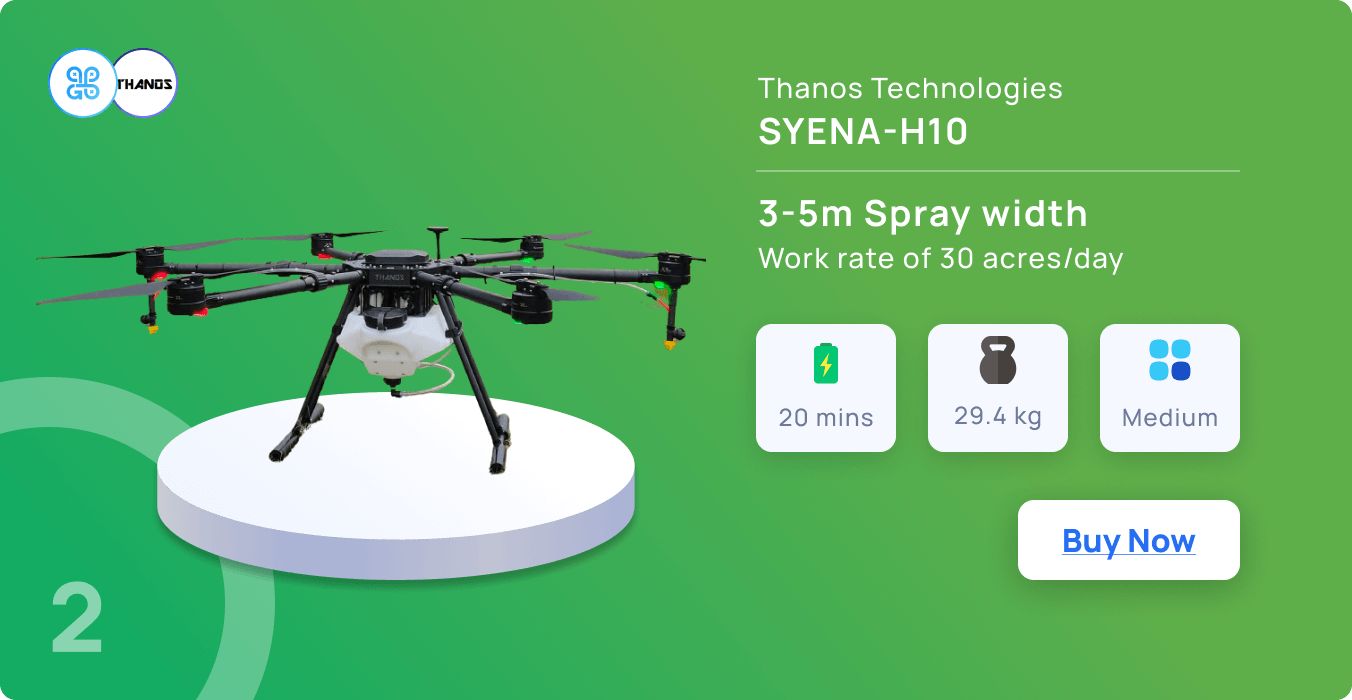
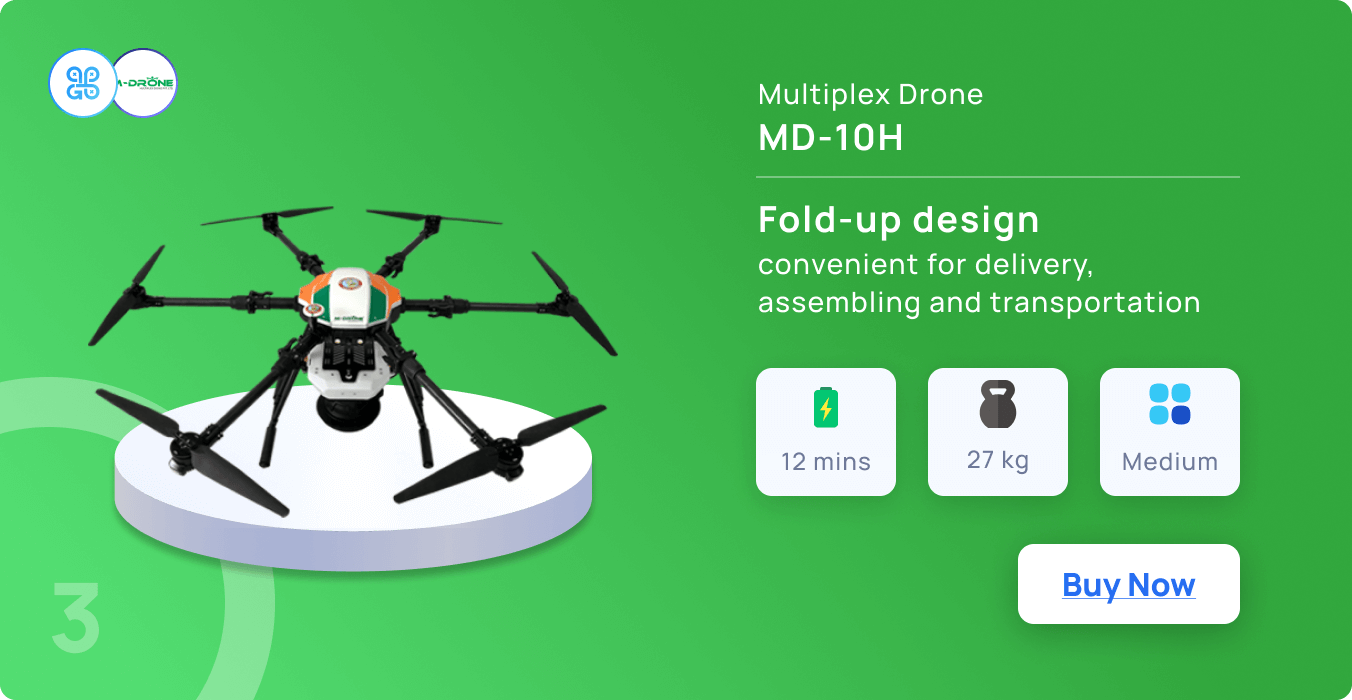
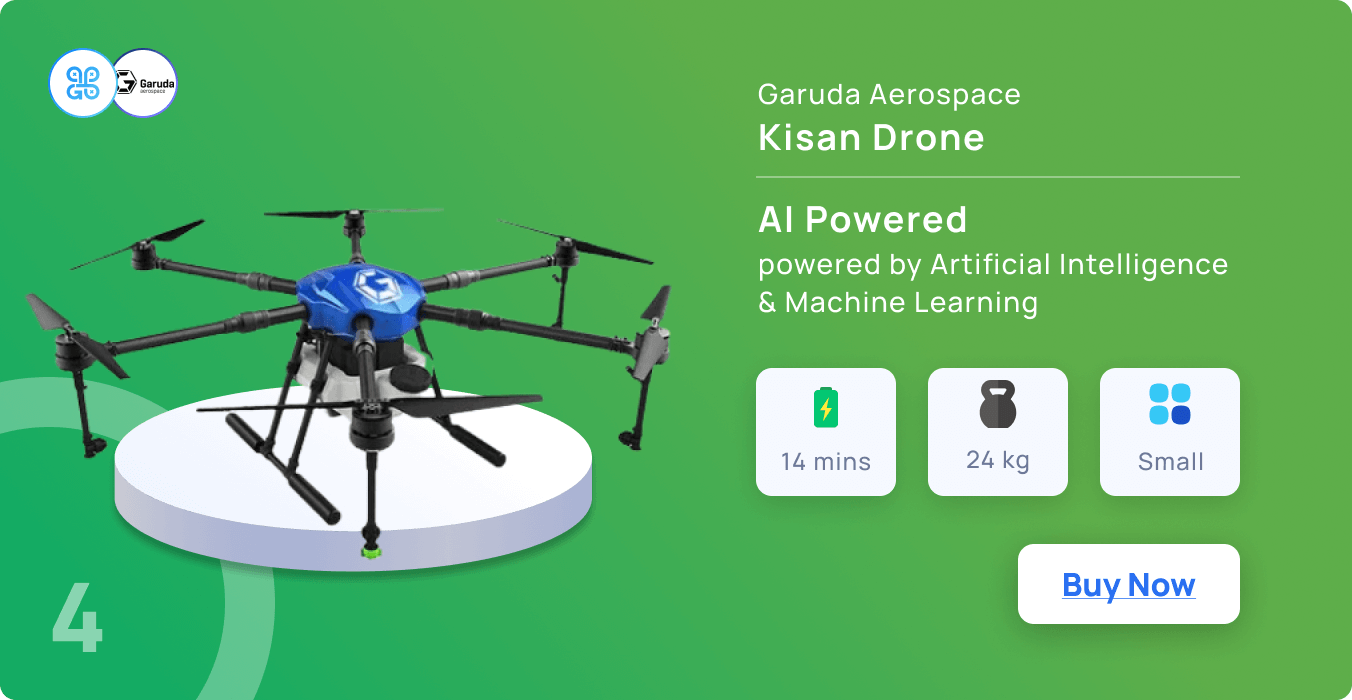
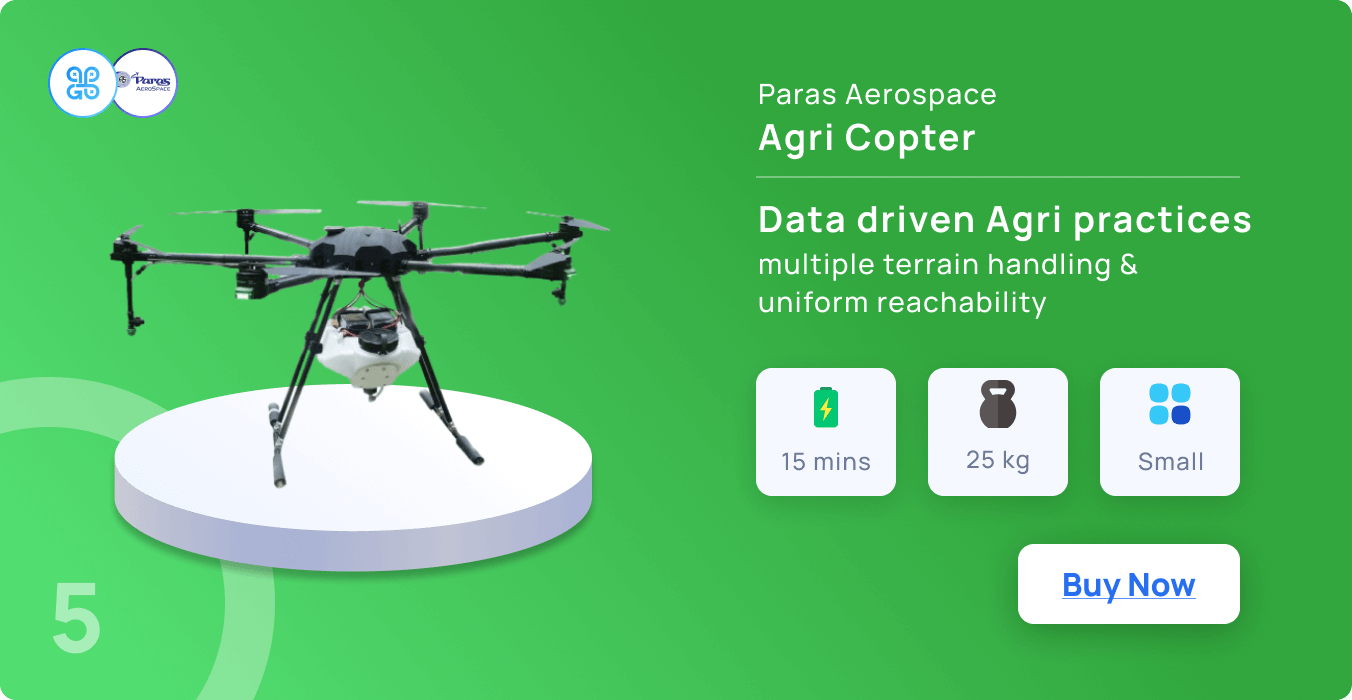
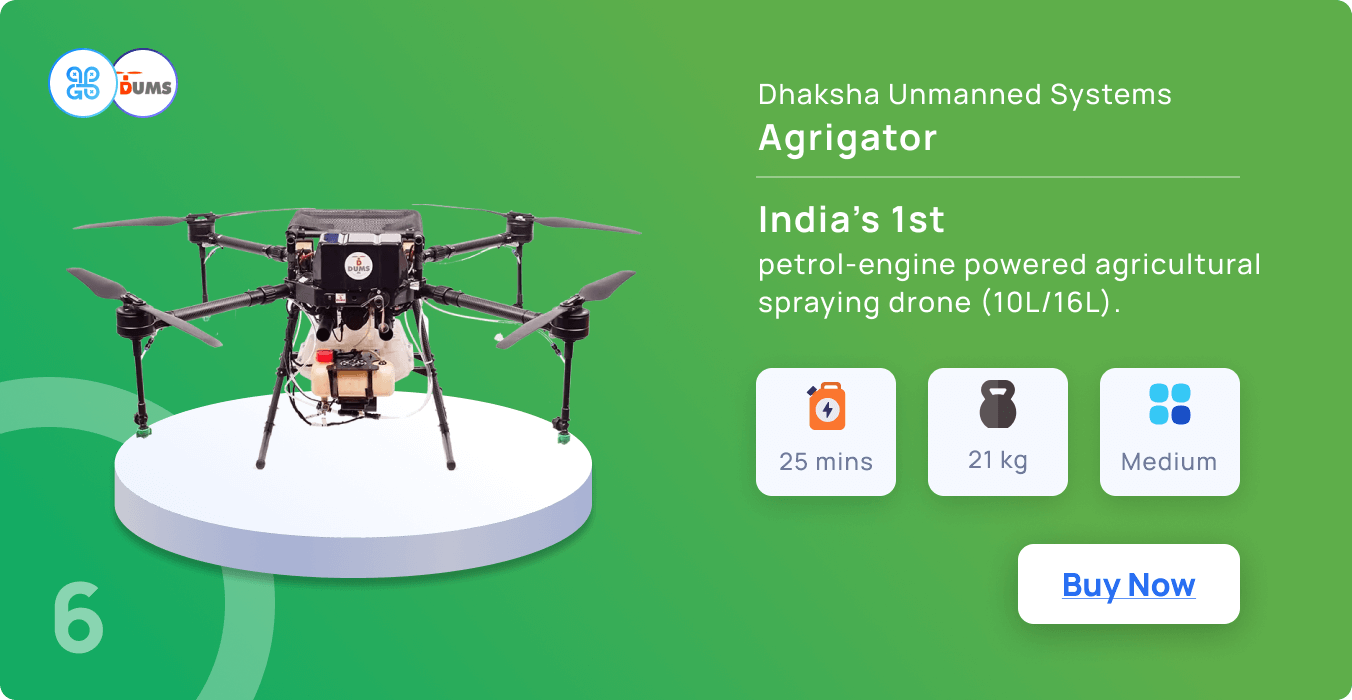
Registering yourself as a remote pilot with the DGCA is a fundamental requirement for operating drones commercially in India. It is a formal acknowledgment of your status as a licensed and authorised drone pilot, and it ensures your compliance with the regulatory framework.
During the registration process, you will be asked to provide essential documents to verify your identity and qualifications. These documents may include your Aadhaar card, passport, educational certificates, and any other identification documents as specified by the DGCA. It is crucial to ensure that all the submitted documents are accurate and up to date.
By registering your drone with the DGCA, you contribute to the overall safety and security of the airspace. It allows the authorities to maintain a record of all authorised drones operating in the country, ensuring accountability and traceability. Additionally, registration facilitates the implementation of necessary safety measures and enables efficient communication between drone pilots and the relevant authorities. and authorised drone pilot, and it ensures your compliance with the regulatory framework.
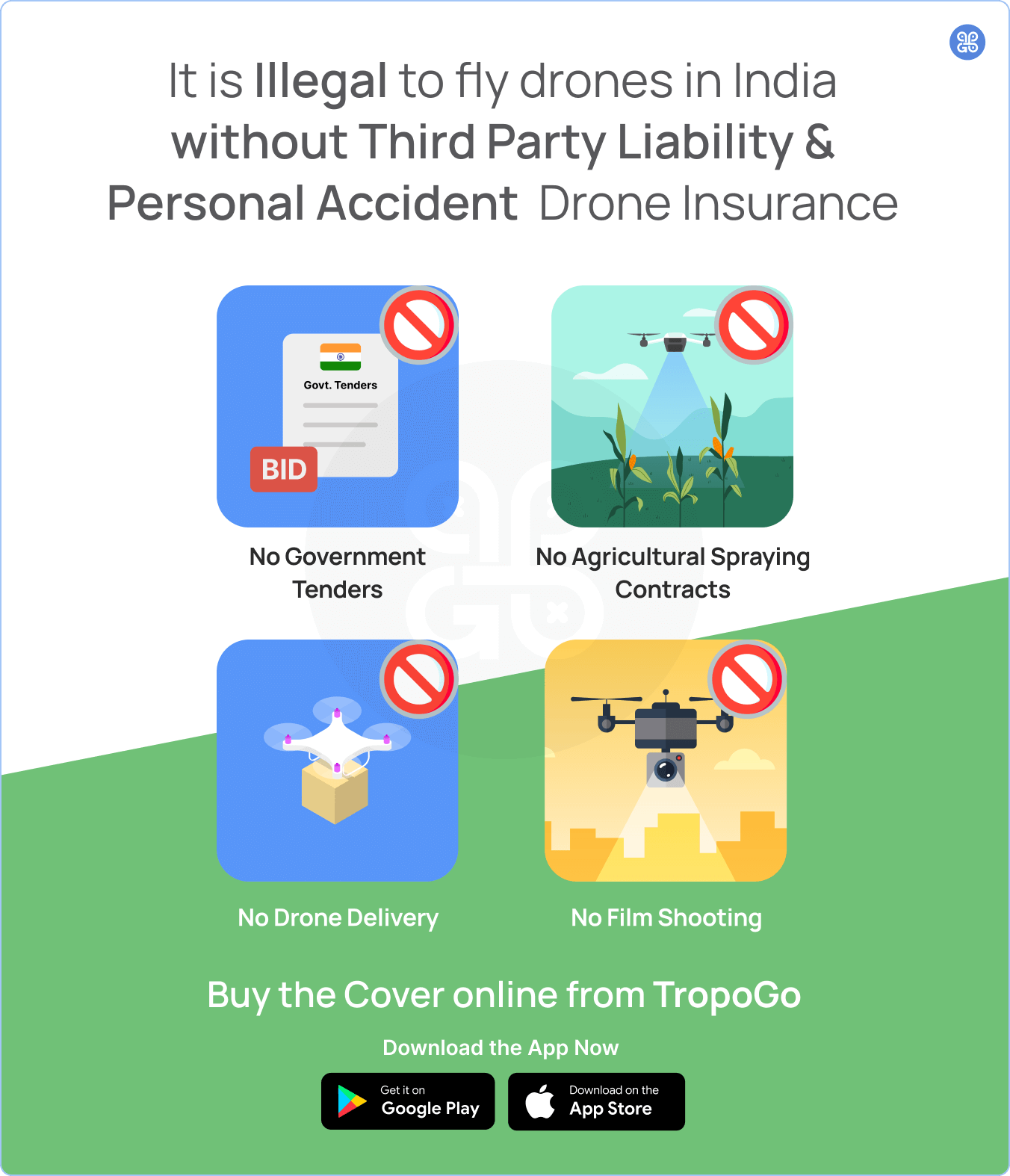
Tropogo is the exclusive platform where you can swiftly buy Drone Insurance online in just 2 minutes, To Know more, Click on the link below :
https://tropogo.com/insurance/drone
Capturing data is just the first step; the real value lies in interpreting and analyzing it to derive actionable insights. Familiarize yourself with software tools that help process and visualize the data collected by your drone. These tools act as your assistants, turning raw numbers into meaningful insights. This skill is crucial for providing farmers with accurate recommendations for managing their crops effectively. It's like being their trusted advisor, helping them make informed decisions for a successful harvest. So, embrace this step as it's where your impact in agriculture truly takes shape.
Becoming a proficient Agri drone pilot goes beyond theoretical knowledge and licensing. Practical experience is a vital component that enhances your skills in operating drones for surveying purposes. By actively engaging in practical flying, you can bridge the gap between theory and real-world applications.
One way to gain practical experience is by Collaborating with Seasoned Professionals in the field. Seek opportunities to work alongside experienced surveyors, drone pilots, and industry experts. Their guidance and mentorship will provide valuable insights into best practices, effective flight manoeuvres, and efficient data collection methods. By observing and learning from their expertise, you can refine your skills and gain a deeper understanding of the intricacies of surveying with drones.
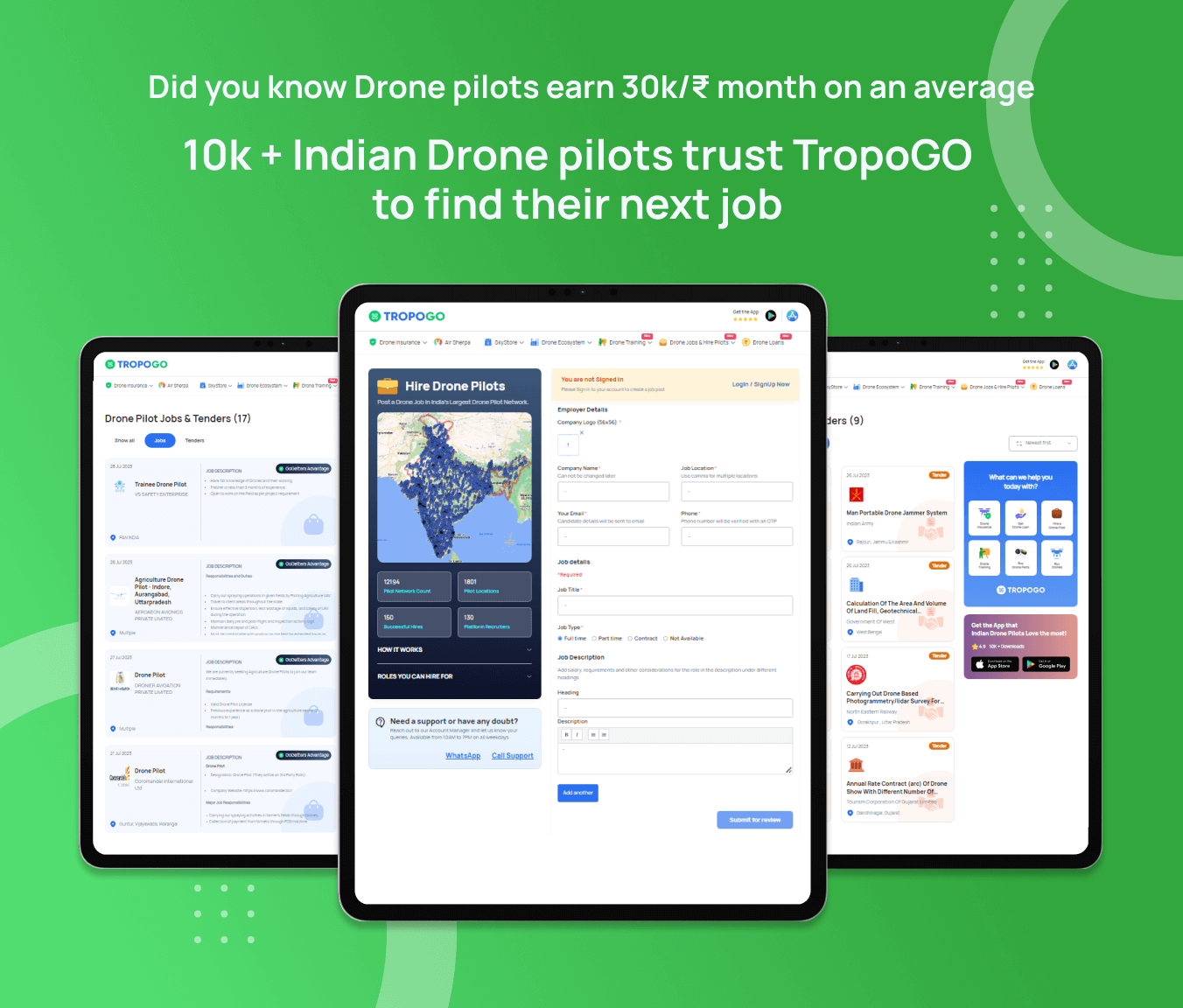
Explore and apply for Drone jobs and Government Drone Tenders in one place
To Know more, Click on the link below :
https://tropogo.com/marketplace/drone-jobs-tenders/job
Joining Organisations involved in Agriculture spraying & management projects is another avenue to gain hands-on experience. These organizations often require the assistance of skilled drone pilots for various tasks, such as Agri Spraying, crop management, land mapping, crop inspections, or environmental monitoring. By actively participating in such projects, you can apply your theoretical knowledge in real-world scenarios, learn how to navigate challenging environments, and adapt to specific Agricultural requirements.
During practical experiences, you will encounter various challenges that will test your decision-making skills and problem-solving abilities. As you gain exposure to different scenarios, you will learn how to assess and mitigate risks, ensure safety protocols are followed, and optimise data collection processes. These experiences contribute to your professional growth and prepare you for diverse and demanding surveying projects.
To fly a drone for agricultural purposes, you need more than just the basic skills of piloting. You also need to know how to interpret maps, analyze data, use photogrammetry software to create 3D models of the terrain, generate reports and visualize the results. A training course from an RPTO can teach you the fundamentals of surveying with a drone, but you also need practical experience in post-processing the data.
Networking provides a platform for knowledge exchange, collaboration, and professional growth. Engaging with Professionals in the Drone Industry, such as experienced pilots, surveyors, and industry experts, can offer valuable insights, advice, and mentorship. Their guidance can enhance your understanding of the industry, provide career guidance, and open doors to new possibilities.
Attending Industry Conferences, Workshops, and Seminars allows you to stay updated with the latest trends, technological advancements, and regulatory changes. These events provide opportunities to meet industry leaders, experts, and potential clients. Engaging in conversations, participating in panel discussions, and sharing experiences can help you establish yourself as a knowledgeable and respected professional in the field.
Joining relevant Online Communities, Forums, and Social Media Groups allows you to connect with a wider audience of like-minded professionals, both nationally and internationally. These platforms provide a space to share your insights, learn from others, and collaborate on projects. Participating in discussions, contributing to the community, and seeking advice can help you build valuable connections and gain exposure in the industry.
Create your Go Getters Drone Pilot Profile today on TropoGo App and be the part of fastest growing drone network.
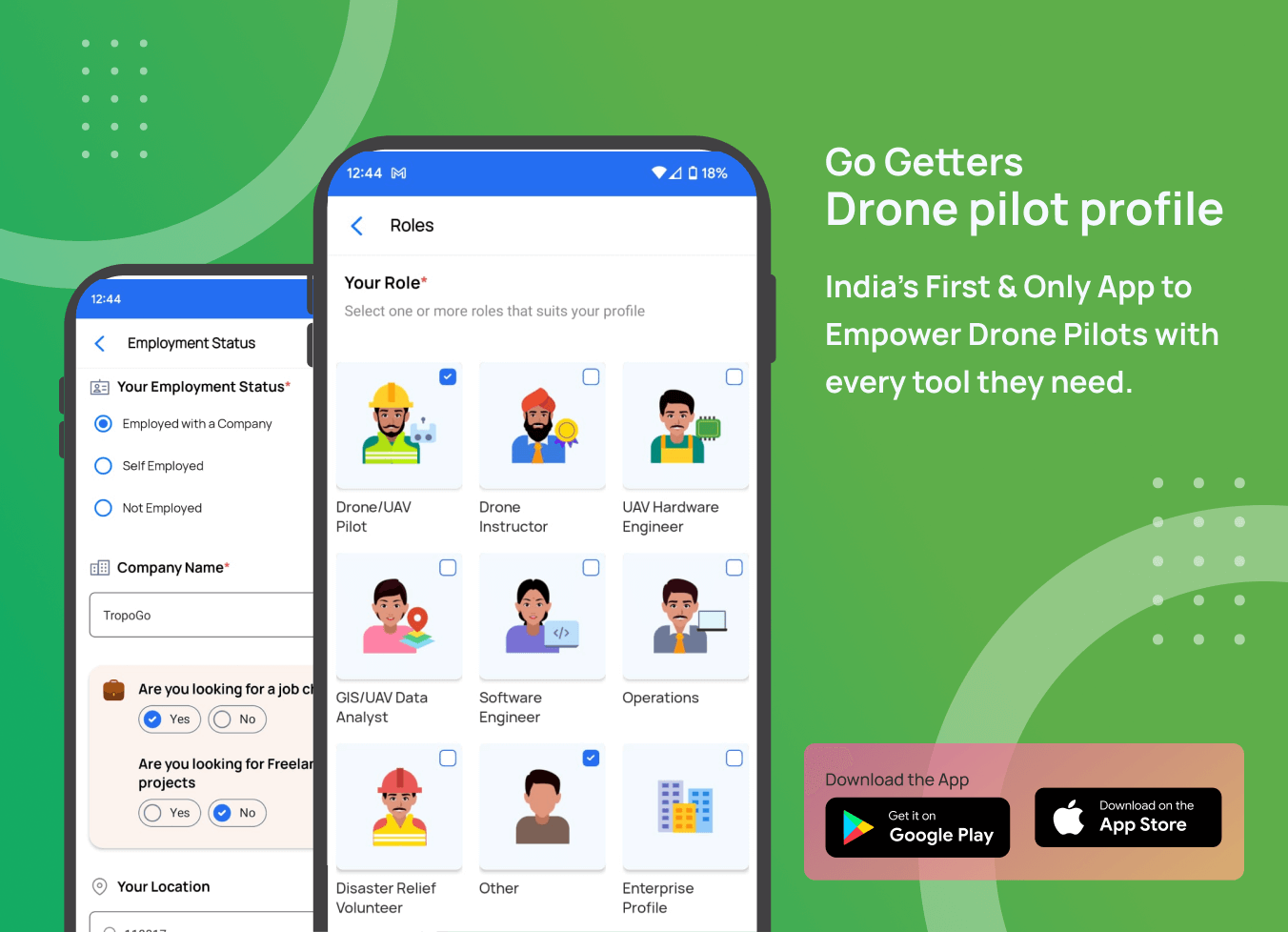
To create your pilot profile, click on the download button above.
Building a Drone Pilot Portfolio is crucial for showcasing your skills and capabilities as a agri drone pilot. Your portfolio should include examples of your work, highlighting the projects you have undertaken, the data you have collected, and the outcomes you have achieved. High-quality photographs, videos, or 3D models captured during agri. missions can provide tangible evidence of your abilities and demonstrate your proficiency in using drones for surveying purposes.
The drone industry in India is experiencing a rapid transformation, with drones becoming indispensable tools for aerial data collection. Becoming a agri drone pilot in India is an exciting and fulfilling journey that requires a blend of theoretical knowledge, practical experience, and unwavering commitment to regulatory compliance. By following the steps outlined in this guide, aspiring drone pilots can acquire the necessary skills, certificate, and experience to soar to new heights in the agriculture industry.

Download for Android : TropoGo-Drone Jobs & Tools - Apps on Google Play
Download for iOS : TropoGo-Drone Insurance & Jobs on the App Store (apple.com)